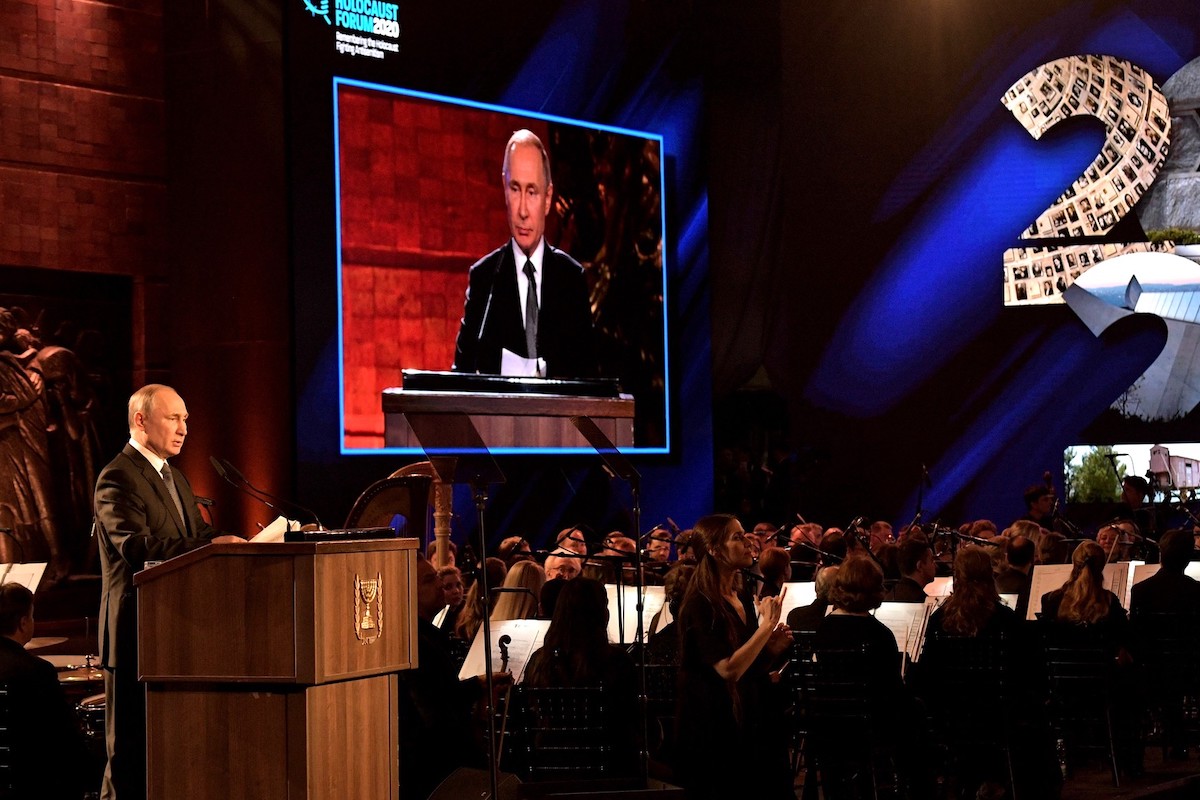History
Putin at the World Holocaust Forum
The indecency of this spectacle was compounded by the fact that Putin was allowed to posture as the savior of Kremlin hostage Naama Issachar, whom he pardoned after his trip.

Earlier this month, some 10 days after the World Holocaust Forum held at the Yad Vashem Holocaust memorial museum in Jerusalem to commemorate the 1945 liberation of Auschwitz, the museum issued an unusual apology for a film presentation that contained “inaccuracies” and “created an unbalanced impression”—by, among other things, memory-holing the 1939 division of Poland between Nazi Germany and the Soviet Union and the Soviet occupation of the Baltics in 1940.
The apology letter, signed by Professor Dan Michman of Yad Vashem’s International Institute of Holocaust Research and published in Haaretz, referred to this assault on historical facts as a “regrettable mishap.” But the presentation was actually part of a much bigger problem: the degree to which the forum was turned into a showcase for Russian President Vladimir Putin, his revisionist history, and his friendship with Prime Minister Benjamin Netanyahu.
The January 23rd forum—funded mostly by Russian Jewish billionaire, European Jewish Congress president, and Putin ally Moshe Kantor, and organized in partnership with the Israeli government—more or less channeled the Kremlin propaganda narrative of World War II, in which Soviet Russia was virtually the single-handed victor over the Nazis and rescuer of the Jews. There was no mention of Soviet collusion with Nazi Germany in 1939–1940 under the Molotov-Ribbentrop Pact, or of Soviet war crimes such as the massacre of 22,000 Polish officers and elite professionals—including, by the way, about 900 Jews—at the Katyn Forest.





